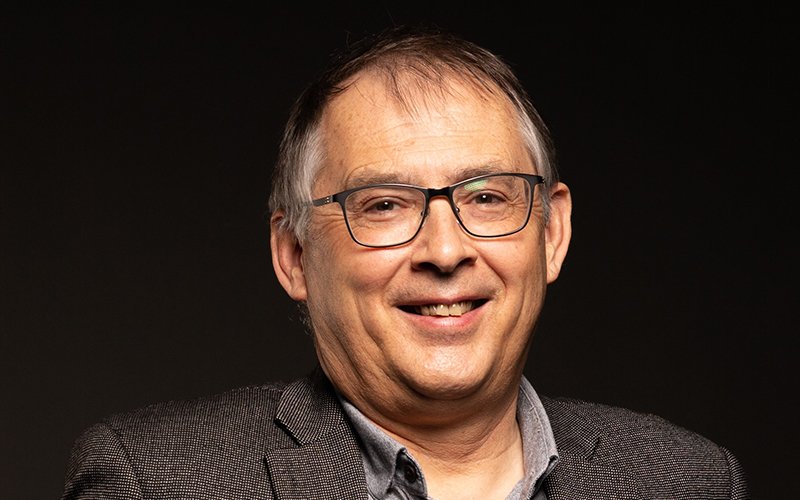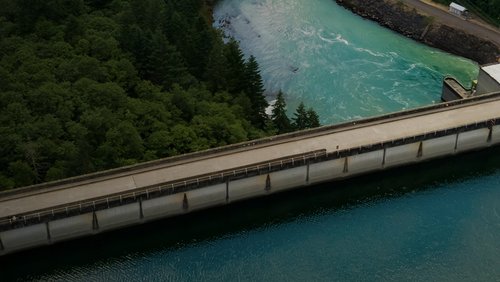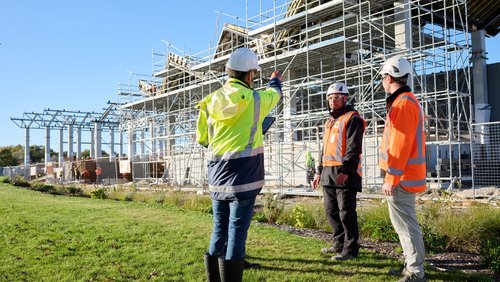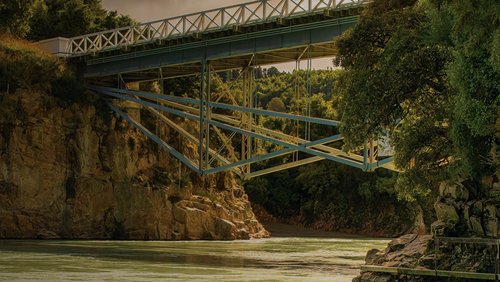11 Jun 2024
Meet Mark Milke, Professor in the Department of Civil and Natural Resources Engineering at the University of Canterbury. Learn about his role, how he incorporates the principles of Te Ao Māori into his courses and much more.
What is your role at the University of Canterbury?
I'm a Professor in the Department of Civil and Natural Resources Engineering. I teach in my discipline of environmental engineering and also on topics related to professionalism. I have just finished a three-year secondment to the Ngāi Tahu Centre to help on developing past research I have been involved with on water management.
What do you enjoy about the world of engineering?
I enjoy the mental challenge and the feeling like I am always learning. I enjoy working on complex problems – the ‘wicked’ problems; I figure that I should not be too frustrated by working on the hard problems that many good engineers have gone through before me, solving so many other problems. I enjoy adding to society’s progress on the hard problems.

Mark Milke. Image: Univesity of Canterbury
What have you learned from your students over the years?
I have learned the value of treating students as engineers-in-training rather than as university students. From the student’s viewpoint, it can mean that I am more collegial when interacting, but it also means that I expect professional standards while at university.
How do you explain the Washington Accord to your students?
The Washington Accord is an international agreement on what engineering education should achieve. It provides common ground to allow engineers more mobility between countries and also more ability to form diverse teams from many backgrounds. Students enter university as engineering students but leave as part of a global community of engineers with remarkably similar mindsets and approaches. Leadership in the service of international standards is critical for engineering graduates from a small country like ours.
How do you incorporate the principles of Te Ao Māori in your course programme?
Engineers are practical people. Projects are a great way to have students learn open-mindedness to different world views. For example, I have used senior managers from Ngāi Tahu as judges in design competitions. This forces students to get into the minds of the judges and what they might consider a better design. It leads students to investigate matters on their own terms and as part of becoming a professional. I find that more effective than trying to teach principles.
What would be your dream project to supervise?
I have been able to help run a project at the cutting edge of environmental engineering practice worldwide, and I hope to be able to tell that story one day.
Why are you a member of Engineering New Zealand?
My tribe is engineering, and I feel a need to acknowledge that through membership with the responsibilities that membership implies (such as serving on SAB). After 5 years as an academic, I decided that I wanted to be an engineer who teaches and not an engineering teacher. That led to be taking on peer review engineering practice work. For the past 15 years, I have been a Chartered Professional Engineer with my specialisation in the environmental impacts of landfills.
If you could meet any engineer in the world, who would it be and why?
Charlotte Brown, Joint Managing Director of Resilient Organisations here in Christchurch. Charlotte is a former PhD student of mine who has done remarkable work improving resilience. She has an ability to work on hard socio-technical problems and take approaches that are innovative and valuable.
What do you do in your spare time?
One hobby of mine is military history board gaming. I enjoy playing elaborate games with 70-page rulebooks, hundreds of small cardboard pieces, and a dining table’s worth of maps.
This interview featured in our Academic e-newsletter, Teach.




